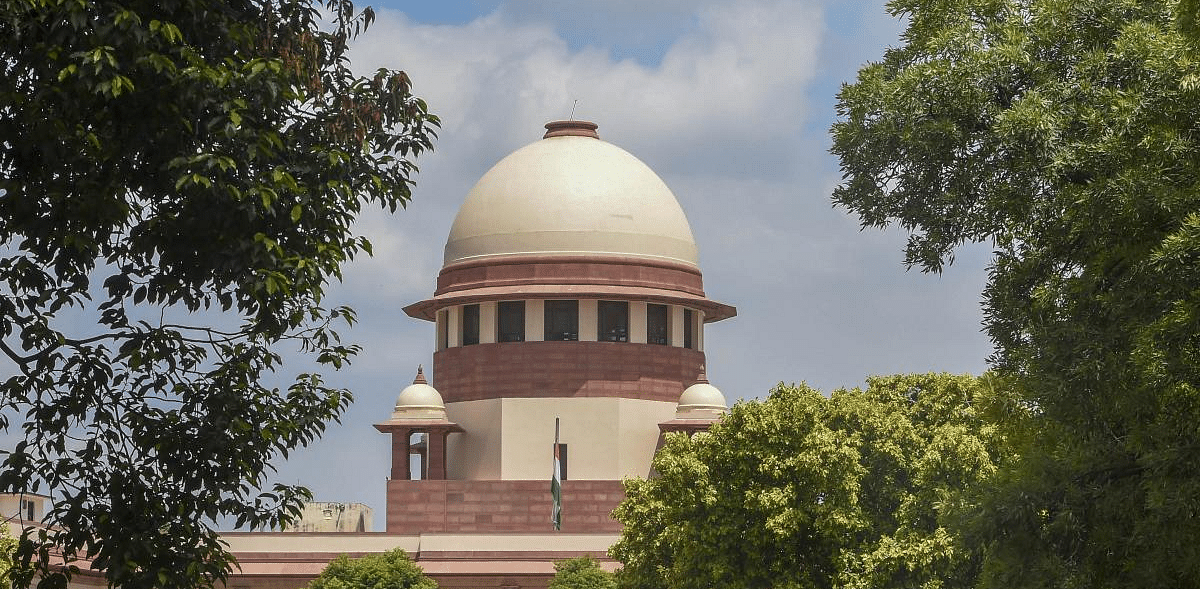
The Centre has defended before the Supreme Court its decision to fix different prices for Covid-19 vaccines for the states, saying it is based on the concept of creating an incentivised demand for the private players and to attract offshore manufacturers to ensure increased availability of vaccine.
It contended that the policy was framed keeping in mind limited availability of vaccines, the vulnerability of age groups, and the fact that vaccinating the entire country was not possible in one go due to the suddenness of the pandemic, as the prime considerations.
In an affidavit, the Union government said the pricing policy would instil a competitive market resulting in higher production of vaccines with affordable prices. The policy was “just, equitable, non-discriminatory and based upon an intelligible differentiating factor between the two age groups (45 plus and those below)," it said.
The Union government has successfully fixed uniform price for the vaccines for states, removing any chance of any inter-se disparity among them, it said.
Read more: Getting people vaccinated only long-term solution to Covid-19 crisis in India: Anthony Fauci
"This price factor will not have any impact on the ultimate beneficiary since all state governments have already declared their policy decision of administering the vaccine to its residents, free of cost," it said.
Both the manufacturers of the vaccine, Bharat Biotech and Serum Institute of India, have declared their respective uniform prices for all state governments, it pointed out.
A bench of Justices D Y Chandrachud, L Nageswara Rao and S Ravindra Bhat is to take up the matter arising out of a Suo Motu case, on Monday.
In response to the top court's queries on April 30 on prices of vaccines and their availability, the Centre pointed out two vaccines are currently part of the drive since January 2021.
Another vaccine, Sputnik V developed by Gamaleya Institute, Russia and distributed in partnership with Dr Reddy’s Laboratories, has received Emergency Use Authorization by the National Regulator in April 2021 and would be available now.
Also read: India's vaccine debacle
Many other candidates are in the late stages of clinical trials and, therefore, expected to receive necessary approval that would further increase the availability of vaccines, it said.
The Centre maintained that its current vaccination strategy is to focus on priority areas and to allow enhanced production and further research and development to continue and expand with full potential without any real or perceived constrictions.
"Sometimes, steps that are taken for immediate needs, to tide over an imminent crisis, may turn out to be imprudent in a long run," it said.
However, the steps need to be appreciated, keeping in mind the complete strategy, policy and holistic picture. In the context of a global pandemic, where the response and strategy of the nation are completely driven by expert medical and scientific opinion, there is even little room for judicial interference.
Any overzealous, though well-meaning judicial intervention may lead to unforeseen and unintended consequences, in absence of any expert advice or administrative experience, leaving the doctors, scientists, experts and executive very little room to find innovative solutions on the go, it added.
About mandatory online registration for the 18 to 44 years age group, it said the doses of vaccine are not unlimited with the constraints of production capacities.
Permitting walk-in vaccination would result in overcrowding at the vaccination centres, defeating its very purpose of vaccination. Any vaccination centre would require certain minimum requirements like doctors, nurses and other paramedics, and waiting in the hall for minimum of 30 minutes.
As more vaccines are available, the system of onsite registration and walk-in vaccination would be considered.
